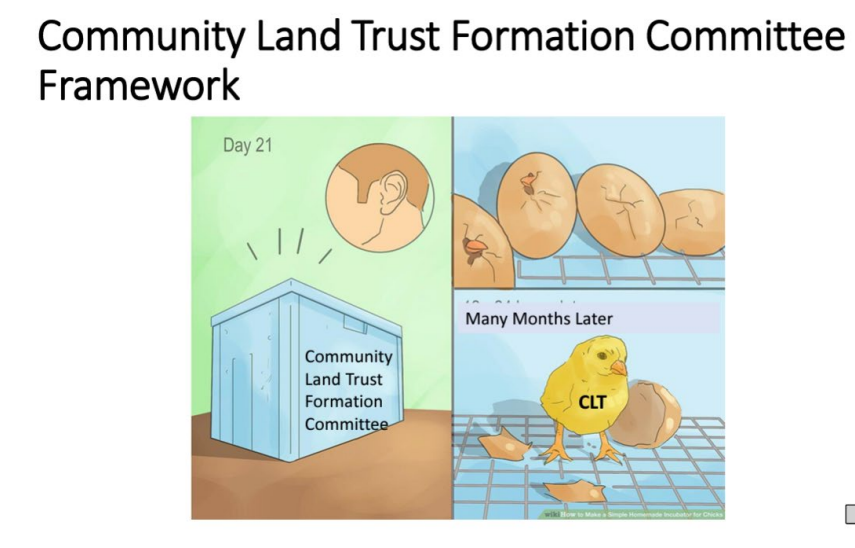How a nonprofit plans to create generations of affordable home ownership in Wauwatosa
Wauwatosa's population is rapidly increasing, the city's 2023 housing study found, and so is its need for affordable housing. Could a nonprofit organization, called a "community land trust," formed by the city be the answer to its affordable housing shortage?
A committee formed to create the private nonprofit, made up of housing experts and city officials, held its first meeting in March. Updates and plans for the future presented at a community affairs meeting on June 11 shed light on the formation committee's progress and plans for the future.
Here's what to know about how a CLT works and how it'll attempt to increase affordable home ownership in Wauwatosa.
More: 'I've got five babies in the car': Inside the fight to get on affordable housing waitlists
What does affordable housing mean?
The affordable housing crisis isn't unique to Wauwatosa ― cities both across the country and the state are grappling with housing shortages.
Housing is considered affordable if a household spends 30% or less of its income on housing-related costs, according to the U.S. Department of Housing and Urban Development.
In Wauwatosa, $44,800 is the minimum household income required for affordable rent, the 2023 housing study found.
The study also found that Tosa households that can affordably own a home earn about 50% more than renters.
What does a community land trust do, exactly?
Community land trusts aren't unique to Tosa; there are over 225 of them in the United States, according to the Grounded Solutions Network, including Milwaukee.
Community land trusts are private nonprofits, not government agencies, Ann Heidkamp, member of the community land trust formation committee, explained at the June 11 meeting.
It's a long-term strategy and a CLT's success depends on its growth over time.
CLTs will buy a house, often one that "might be in foreclosure or is already a very distressed property so that it would be attainable at a low price already," said Heidkamp.
Then the CLT holds the land, and the house would be "rehabbed as needed," she said, and sold to someone who meets the income criteria. Specific criteria for someone who may qualify for one of these homes has not yet been determined.
The person who sells the house next must also sell it at an affordable price to someone who meets the criteria, Heidkamp said.
"And the reason you can keep the home price affordable is because the land trust itself would own the property," she said.
The CLT would own the property, and the homeowner would own the house. The homeowner would pay a monthly rent to the CLT for the property.
"The owner, just like any of us who own our house, would still have the portion of the equity on the house itself," Heidkamp said.
The closest example of what Wauwatosa is envisioning, Heidkamp said, is the CLT in West Hennepin County in Minnesota, which has helped over 200 families become homeowners since it began in 2001.
Where will funding for Wauwatosa's CLT come from?
CLT's strategy is "not a quick thing, because you have to be able to attain houses, get them sold, and then as money comes in, you can buy more houses, and so it builds on itself over time," Heidkamp said.
The committee "hasn't even begun" to look at where outside funding sources will come from, she said, but some options could include funding from federal, state or private grants.
"But it would not all be on the backs of taxpayers," Heidkamp said. "We don't even know if there will be a public contribution from Wauwatosa at this point."
Milwaukee's CLT, which put its first home on the market last year, relies on public and private subsidies, its site says. There's also an option on their website to directly donate to their CLT.
What are the land trust's plans for the future?

One way to think about the community land trust formation committee is like it's "an incubator," Heidkamp said.
"We're nurturing the process along," she said. "Hopefully the egg will develop; then, hopefully by another nine months or so, we will have a hatched chick of a land trust."
Milwaukee County is in the process of hiring a land trust consultant for the committee who's predicted to be hired by late summer, she said.
"This consultant would be zero cost to Wauwatosa except for the salaried staff time for the ad hoc committee administration, which the staff is already providing," Heidkamp said.
So far, Wauwatosa's CLT has met with both Madison and Milwaukee's CLTs for advice and will continue to look to preexisting land trusts to model after.
The formation committee will also work to identify potential partners and lenders.
In early 2024, the committee hopes to put its plans in action, at which point the formation committee would dissolve, she said.
Quinn Clark can be emailed at QClark@gannett.com. Follow her on Twitter @Quinn_A_Clark.
More: An affordable housing project fell through in Wauwatosa. Storage units are taking its place.
More: Wauwatosa wants more affordable apartments. Why do those projects face financing challenges?
THANK YOU: Subscribers' support makes this work possible. Help us share the knowledge by buying a gift subscription.
DOWNLOAD THE APP: Get the latest news, sports and more
This article originally appeared on Milwaukee Journal Sentinel: Community Land Trust in Wauwatosa aims to create affordable housing

